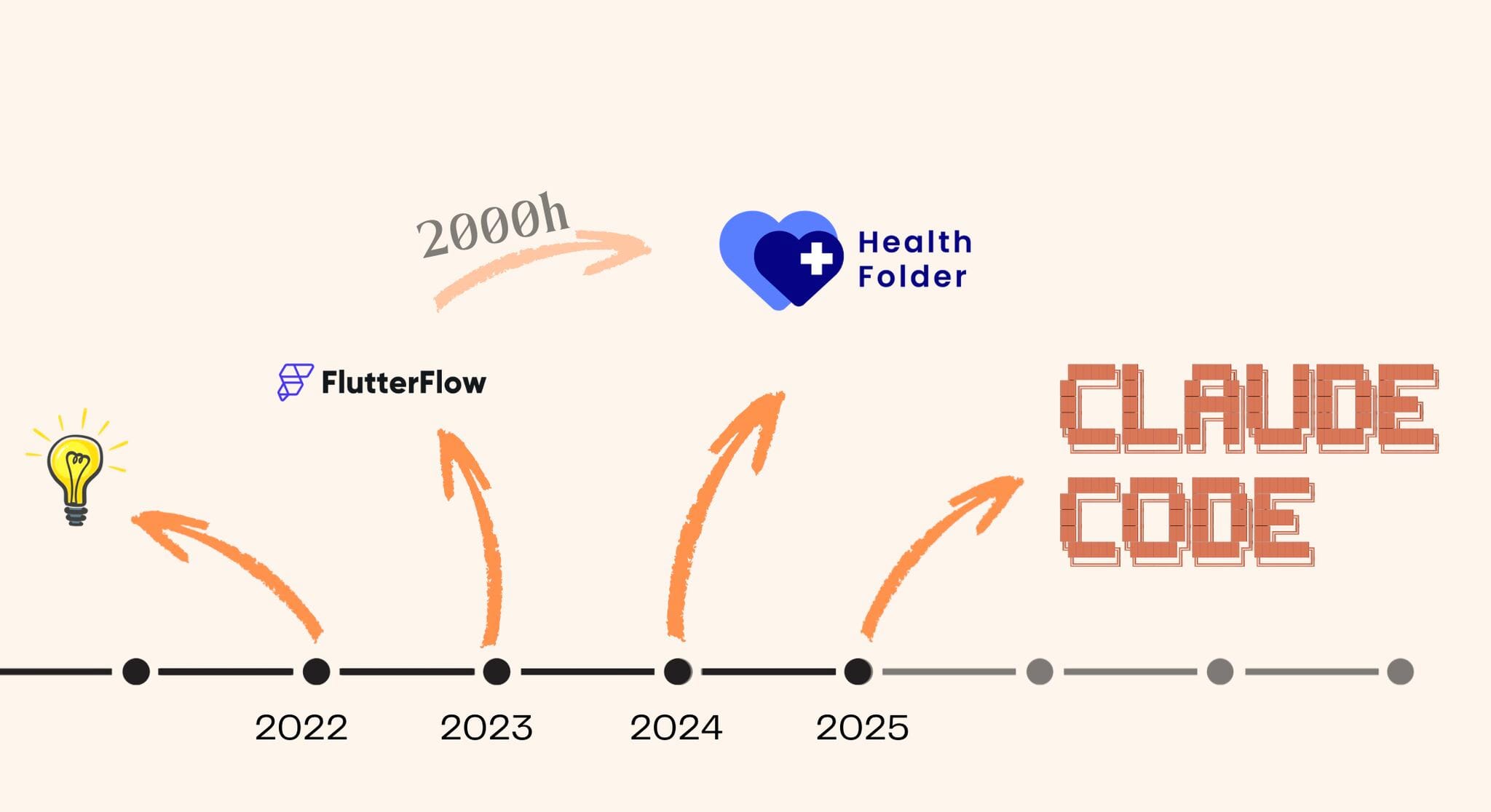How Pragmatic Coders Rewrote a Full App with Almost No Budget… Thanks to AI

Our AI experts, Jakub Pruszyński and Sebastian Druciak, took the stage at the Claude Code Meetup in Gdańsk to show how AI can reduce tech debt in software development.
On 12 November at 17:30, the Claude Code Meetup took place at the justjoin.it headquarters in the Olivia Centre in Gdańsk. The event was organized by Anthropic, justjoin.it, and BRAVE.courses and brought together developers, founders, and AI practitioners eager to see how far modern agentic systems can push real-world software engineering.
Among the speakers were Jakub Pruszyński and Sebastian Druciak, AI experts at Pragmatic Coders, who presented a talk titled:
“Rewriting apps from scratch without budget but with AI.”
Their session focused on a full case study: how to rebuild an entire production mobile application with almost no human development time and almost no budget — using AI, smart workflows, and domain knowledge.
The Challenge: A Live Product, Massive Tech Debt, and No Budget

The presented case revolved around Health Folder, a health-oriented mobile app originally built in Flutter Flow.
Here’s the timeline they walked through:
2022 – initial idea for the product
2023 – first implementation using low-code (Flutter Flow)
Production launch – active users, subscriptions, and real usage
The problem – the app had accumulated massive (yet intentional) technical debt and the chosen tech stack was reaching its limits. It’s worth noting the tech debt was taken consciously to make dynamic growth at the early stages of the startups possible. Learn more: Types of tech debt: Deliberate & prudent vs. Inadvertent and reckless
The constraint – no budget for a full rewrite
Originally, developing the app in low-code took nearly 2,000 hours of work. Rewriting it manually in a traditional stack was simply unrealistic.
Meanwhile, the team had also experimented with Kotlin Multiplatform (KMM) in a separate project, treating Health Folder as an informal testing ground for 2 weeks. That exploration later turned out to be crucial.
2025: When Claude Code Changes the Game
Fast forward to 2025. Claude Code had matured enough to become a practical co-developer rather than just a toy.
At this point, Wiktor, involved in the Health Folder project, made a new proposal. Instead of paying for the rewrite — which wasn’t financially possible at the time — he offered equity in the application to Jakub and Sebastian in exchange for taking on the development effort with AI.
This transformed the project dynamic:
no traditional budget
high personal motivation
a clear win–win structure
strong incentive to use AI to minimize manual work
The key assumptions of the rewrite were clear:
Minimize human involvement
Maximize AI-generated code
Reuse existing assets (Flutter Flow project, KMM experiment, domain knowledge)
Keep costs extremely low — ideally under a few hundred dollars in AI usage
The team accepted the challenge.
The Outcome: 73 Hours Instead of 2,000+
Using Claude Code, multiple domain-specific agents, and iterative workflows, the team managed to:
Rewrite the entire application in Kotlin Multiplatform
Deliver a clean, maintainable codebase for both Android and iOS
Keep AI usage costs at around $400
Complete the whole rewrite in 73 hours of effective work
What They Shared on Stage
During their presentation, they walked the audience through:
1. The naïve approach they started with
Why the initial “just ask AI to rewrite everything” idea collapsed quickly.
2. The uncomfortable truths
Where AI struggled, why certain prompts failed, and which tasks still required careful human direction.
3. The repairs and workflow improvements
Including the creation of:
3 specialized AI agents
3 reusable commands
A custom hook that stabilized the code generation pipeline
4. The final working pipeline
A repeatable method for rewriting an app that’s:
domain-aware
consistent
cost-efficient
radically faster than traditional development
Why This Matters for the Future of Software Development
This case study highlights a new reality: AI-augmented engineering is already happening.
For companies stuck with:
legacy systems
hard-to-maintain prototypes
runaway technical debt
or simply no budget for a rebuild
AI-driven rewrites may soon become the most economically viable option.








